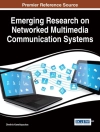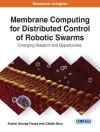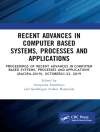This book, Artificial Intelligence and Machine Learning in Satellite: Data Processing and Services, presents the selected proceedings of the International Conference on Small Satellites (ICSS 2022) that aims to provide an opportunity for academicians, scientists, researchers, and industry experts, engaged in teaching, research, and development on satellite data processing and its services by employing advanced artificial intelligence-based machine learning techniques. This book covers the application of artificial intelligence and machine learning techniques in various domains of earth observations like natural resources and environmental management, water resources, urban and rural development, climate change, and other contemporary subjects. The book will surely be a valuable asset for beginners, researchers, and professionals working in satellite data processing and services using artificial intelligence and machine learning approaches.
Inhoudsopgave
1. Smart Small Satellites and Payloads.- 2. Communication Satellites.- 3. Space Craft Autonomy and Onboard AI.- 4. Constellation Management.- 5. Small Satellite Constellation Applications and Services.- 6. Space Law and Space Business.
Over de auteur
Dr. Sumit Kumar is an associate professor in the Department of Research and Innovation under the Division of Research and Development at Lovely Professional University, Punjab, India. Dr. Kumar received his Ph.D. degree from the Indian Institute of Technology (ISM), Dhanbad, Jharkhand, India, in Electronics Engineering. He has more than 13 years of research experience in the various fields of electronics engineering and its allied areas. Before joining the LPU, he worked in several laboratories of national repute including CEN laboratories IITBNF, IIT Bombay; IIT (ISM) Dhanbad; Delhi Technological University, New Delhi; CSIR-National Physical Laboratory (NPL), New Delhi; University of Delhi, etc. He has published plenty of research articles duly indexed in Web of Science and Scopus databases including Elsevier, IET, IEEE, Springer, IOP Sciences, Wiley, Taylor & Francis, etc. His most impactful work has been included in Additive Manufacturing Journal, Elsevier, and Biosensors & Bioelectronics, Elsevier. Currently, four Ph.D. scholars are working under his supervision. His current research areas include nanoelectronics, optoelectronic devices, sensor technologies, and the deployment of artificial intelligence and advanced machine learning strategies on a variety of image data sets. Apart from that, he is a potential reviewer of several international journals and conferences.
Dr. Raj Setia is a senior scientist at Punjab Remote Sensing Centre, Ludhiana, India. He did his Ph.D. and Postdoc from the University of Adelaide, Australia. He, for the first time in the world, modified a carbon model for salt-affected soils. He is working on the application of remote sensing and geographic information systems (GIS) in agriculture and soils, water quality, and modeling. He has guided more than 10 M.Sc. and Ph.D. students, and currently, several M.Sc./M.Tech./Ph.D. students are working with him. He got many awards from India, Australia, and the USA. Few of these are the Australian Society of Soil Science Inc. Publication Medal, Soil Science Australia; Francis and Evelyn Clark Soil Biology Scholarship, Soil Science Society of America; NAAS Associate, National Academy of Agricultural Sciences, India; Gold Medal from Soil Conservation Society of India; President Appreciation Medal from Indian Society of Remote Sensing and Junior Scientist of the Year Award, National Environmental Science Academy, India. He has published more than 100 papers in peer-reviewed journals.
Dr. Kuldeep Singh is an assistant professor in the Department of Electronics and Communication Engineering at MNIT, Jaipur, India. Dr. Singh has received his Ph.D. degree in Computer Vision from Delhi Technological University, New Delhi, India, and M. Tech. degree in Signal Processing from Netaji Subhash Institute of Technology, New Delhi. He has worked as a postdoctoral fellow at the University of Alberta, Canada, where he was involved in the development of deep learning-based functional prototypes for agriculture applications. Before joining MNIT, he worked at the Central Research Laboratory of Bharat Electronics Ltd. (BEL), Ghaziabad, as a scientist from Jan 2007 to Mar 2019. During his stint at BEL, he has worked on various projects of national importance. He was involved in the software development of various C4I systems for Indian and foreign defense forces. He has been awarded R & D Excellence award at Bharat Electronics Ltd. in 2009 and 2011. Dr. Singh’s research interest involves various fields which include machine/deep learning, computer vision, artificial intelligence, biometrics, and cyber-security, and has authored more than 40 publications in these research areas. Apart from that, he is a potential reviewer of various IEEE transactions, Elsevier & Springer journals.












